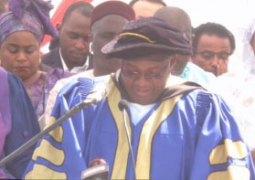It is an accepted fact that skilled or trained human resources does not only contribute to national development, but also serves as a factor of production that also creates wealth.
There are many countries that are not blessed with abundant natural resources, but are able to create stupendous wealth owing to the efficient application of their human resource. Japan is a case in point.
By contrast, there are some African countries that are endowed with natural wealth, yet deeply steeped in poverty, caused mainly by the poor development and utilitisation of their human resource.
It all goes to show that it is not what resources you have at your disposal that matters, but how you make judicious use of them.
As Africans, we must emphasise the need for more technical and vocational training opportunities that should be made available and affordable to the Gambian population, especially the youth, as it is the labour force that makes a difference.
A country endowed with well-trained and well-mobilised human resources is bound to be more prosperous than the one with ill-trained and poorly coordinated human resources.
It is, therefore, important to invest a lot in our human resource. We need well-trained manpower to exploit our mineral wealth, and to ensure a just and equitable distribution of national wealth within the framework of an open society.
Sadly, vices that retard Africa’s progress include corruption, nepotism, ethnicity, religious bigotry and senseless wars.
Even where there is a superabundance of highly-skilled human resources, it would bear no fruit for society’s benefit if corruption, in its various forms, continues to exist unabated.
“Our progress as a nation can be no swifter than our progress in education. The human mind is our fundamental resource.”
John Fitzgerald Kennedy
Read Other Articles In Article (Archive)
Complainant Application granted
Mar 20, 2009, 8:32 AM


